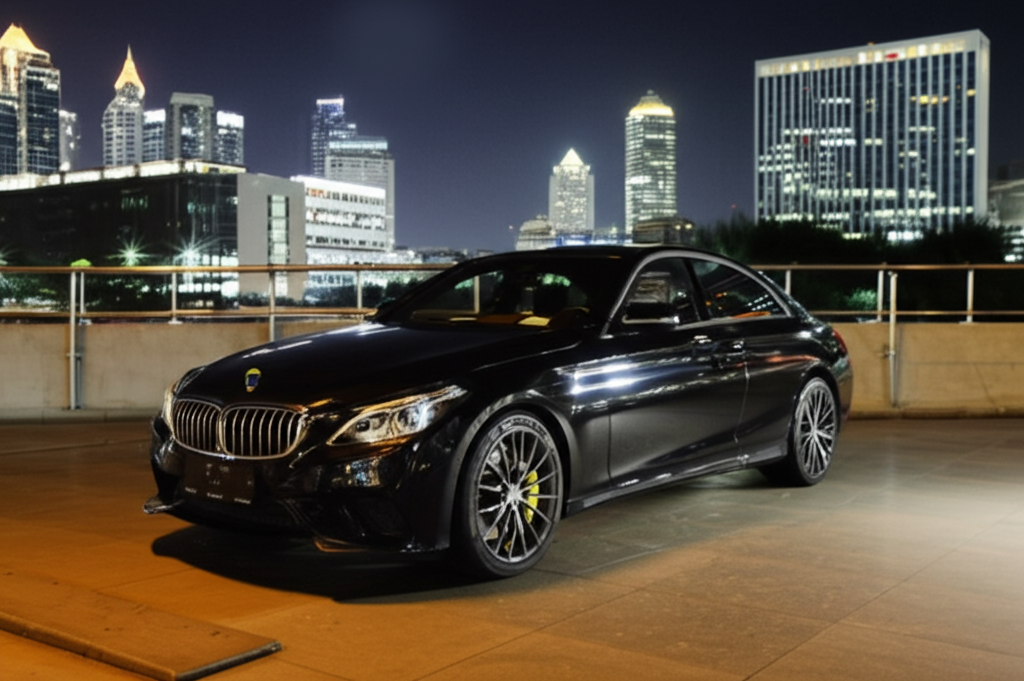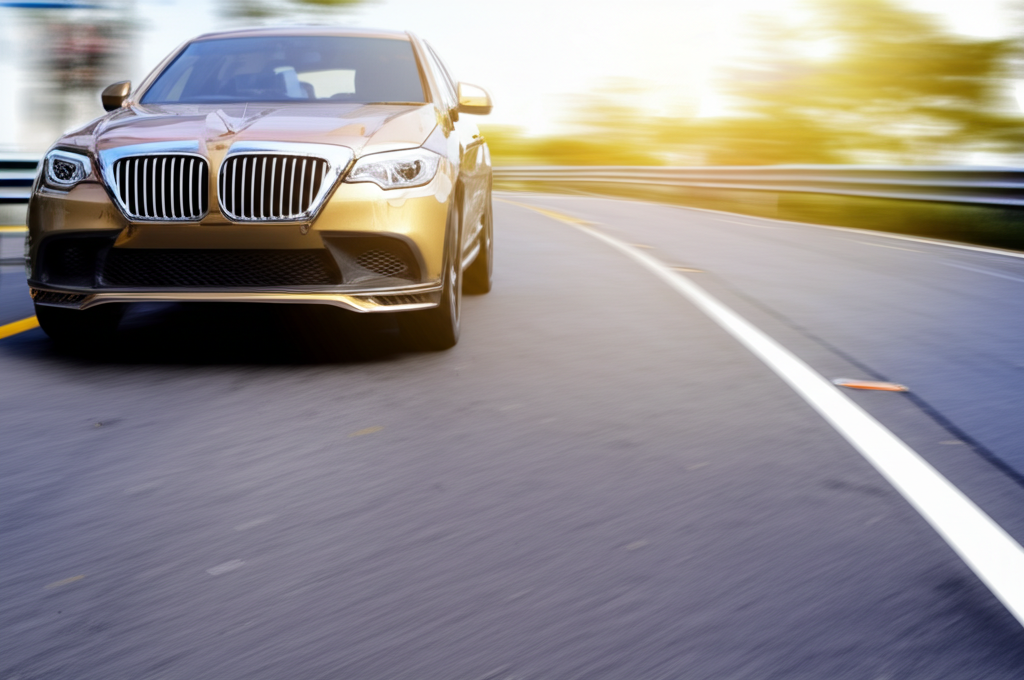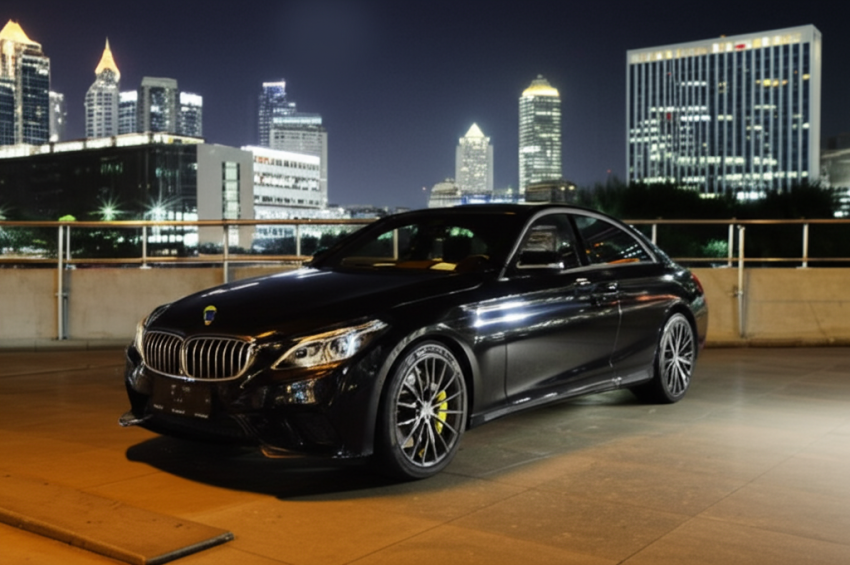You own a car that’s more than just transport; it’s a statement, a reflection of your success and taste. Whether it’s a sleek European sedan, a powerful SUV, or an iconic sports car, maintaining its pristine appearance is paramount. You’ve likely considered a car wrap – perhaps for protection, perhaps for a subtle style change. But stepping into the world of car wraps, especially Thermoplastic Polyurethane (TPU) films, can be confusing. Brands abound, claims vary, and the price difference between ‘imported’ and ‘domestic’ options can be significant. The nagging question arises: Does the brand *really* make that much difference? You certainly don’t want a low-quality, “generic brand” wrap compromising the sophisticated look of your vehicle, potentially causing more harm than good down the line. Let’s delve into the tangible differences and understand why choosing the right TPU brand is crucial for discerning car owners in Thailand.

From Apprehension to Admiration: Khun Anand’s Porsche 911 Journey
Meet Khun Anand, a proud owner of a stunning Porsche 911 Carrera S in Gentian Blue Metallic. Based in Bangkok, Anand cherished his car’s deep, lustrous paint but dreaded the inevitable minor scratches, stone chips from highway drives, and the harsh Thai sun’s potential toll. He wanted paint protection film (PPF), specifically a high-quality TPU, but was initially overwhelmed by the choices. “I saw ads for wraps promising the world at very low prices, mostly local or unbranded names,” Anand recalls. “But putting something cheap on my 911 felt wrong. It’s like wearing a bargain-basement suit to a black-tie event – it just doesn’t fit the image or the quality I expect.”
After researching and consulting with specialists, Anand learned about the distinct advantages of premium, often imported, TPU brands known for their clarity, self-healing properties, and durability. He was hesitant about the higher cost initially. “Was it just marketing, or was there real substance?” he wondered. He decided to invest in a renowned imported TPU film known for its optical clarity and hydrophobic properties. The installation process was meticulous, carried out by certified professionals who understood the intricacies of wrapping a car with complex curves like the 911. The difference was immediate. “The film was virtually invisible,” Anand beams. “It didn’t dull the Gentian Blue; if anything, it added depth. And the peace of mind is incredible. Minor swirls disappear with a bit of sun, water beads off effortlessly, and cleaning is so much easier.” His initial apprehension transformed into pure admiration for both his car’s enhanced look and the protection it now had. The higher investment, he concluded, was justified by the superior quality and the preservation of his car’s elite status.

Decoding TPU: Not All Films Are Created Equal
TPU has become the gold standard for paint protection films (PPF) and high-quality colour change wraps due to its flexibility, durability, and self-healing capabilities. However, the term “TPU” covers a wide spectrum of quality. The differences primarily lie in the raw materials, manufacturing processes, adhesive technology, and top-coat formulations. Let’s break down the key distinctions you’ll often find between premium imported brands and standard domestic or generic options:
| Feature | Premium Imported TPU (e.g., Leading US/European Brands) | Reputable Domestic TPU (Higher-Tier Thai/Asian Brands) | Generic / Low-Quality TPU |
|---|---|---|---|
| Material Purity & Base Film | Highest grade aliphatic TPU pellets, ensuring superior clarity, flexibility, and resistance to yellowing. Consistent thickness. | Good quality TPU, often aliphatic, but potentially with slight variations in purity or consistency compared to top-tier imports. Generally reliable. | May use lower-grade TPU or even blends (sometimes aromatic TPU which yellows faster). Inconsistent thickness, potential impurities affecting clarity. |
| Top Coat Technology | Advanced, multi-layer ceramic-infused or proprietary polymer top coats. Excellent stain resistance (bugs, bird droppings, chemicals), superior hydrophobic properties, enhanced gloss/matte finish. | Good quality top coat, often with hydrophobic and some stain-resistant properties. May not be as advanced or durable as premium imports. | Basic or minimal top coat. Prone to staining, water spotting, and may lose its finish quality relatively quickly. Limited protection. |
| Self-Healing | Excellent heat-activated self-healing of light scratches and swirl marks. Often faster and more effective recovery. | Good self-healing properties, usually heat-activated. May require more heat or take longer to heal compared to premium options. | Limited or inconsistent self-healing. Some cheaper films may lack this feature entirely or it degrades quickly. |
| Clarity & Finish | Exceptional optical clarity (‘invisible’ look), minimal to no ‘orange peel’ texture. Deep gloss or smooth matte finishes that enhance original paint. | Good clarity, generally low orange peel. Finish quality is high but might sometimes be slightly less refined than the absolute best imports. | Noticeable orange peel texture, potential haziness or cloudiness. Can dull the original paint’s appearance. Finish may look uneven. |
| Adhesive Quality | High-quality, pressure-sensitive adhesive designed for strong bonding without damaging OEM paint upon removal (within warranty period). Allows for repositioning during install. | Reliable adhesive, generally safe for OEM paint. Good tack and bonding properties. | Inconsistent adhesive. Can be overly aggressive (risking paint damage on removal) or too weak (leading to lifting edges). May leave residue. |
| Durability & Warranty | Typically 7-12 years warranty against yellowing, bubbling, cracking, staining. Proven longevity in harsh climates. | Usually offers 3-7 years warranty. Good durability but may show signs of wear sooner than premium imports, especially in intense UV exposure (like Thailand). | Short warranty (1-3 years) or none. Prone to premature failure: yellowing, cracking, peeling, adhesive issues are common. |
| Price Range (Full Car Wrap – indicative) | Higher (e.g., 80,000 – 150,000+ THB) | Medium (e.g., 45,000 – 80,000 THB) | Lower (e.g., 20,000 – 45,000 THB) |
| Ideal For | Owners of premium/luxury vehicles seeking the absolute best protection, clarity, longevity, and brand assurance. Those prioritizing quality and peace of mind over cost. | Budget-conscious owners of mid-range or premium cars seeking good quality protection and a reliable warranty without the top-tier price tag. A solid value proposition. | Short-term applications, very tight budgets where basic protection is better than none, or for vehicles where long-term preservation isn’t the primary goal. High risk of disappointment for brand car owners. |
As the table illustrates, while reputable domestic TPU brands can offer good value, the premium imported brands generally excel in material science, top-coat technology, and long-term durability backed by stronger warranties. For a car that represents a significant investment and personal pride, the superior performance and “invisible” quality of top-tier TPU often align better with the owner’s expectations.
Voices from the Road: Owners Share Their Experiences
The true test lies in real-world experience. Here’s what other brand car owners in Thailand are saying:
“I initially went for a cheaper, local TPU on my BMW 5 Series. Within a year, it started looking hazy and picked up stains easily. I recently switched to a well-known American brand. The difference is night and day! The clarity is amazing, and it feels so much more substantial. Lesson learned – you get what you pay for, especially with luxury cars.” – Khun Sirichai, BMW Owner, Chiang Mai
“My Mercedes-Benz C-Class is my daily driver in busy Bangkok traffic. I opted for a top-tier imported PPF. The self-healing is fantastic – minor scuffs from parking lots just vanished after a day in the sun. It gives me confidence knowing the original paint is protected without compromising the car’s elegant look.” – Khun Pim, Mercedes-Benz Owner, Bangkok
“I debated between a mid-range domestic TPU and a premium European one for my Audi Q5. Seeing side-by-side comparisons at the installer, the imported film had noticeably better gloss and clarity. It cost more, but the finish perfectly matches the quality feel of the Audi. No regrets!” – Khun Decha, Audi Owner, Phuket
The sentiment is consistent: for owners who value their vehicle’s aesthetics and long-term condition, investing in a reputable, high-performance TPU film, often an imported brand, brings tangible benefits and peace of mind that lower-tier options simply cannot match.
Ready to Protect Your Investment with the Right TPU Film?
Choosing the right TPU wrap is an investment in preserving your car’s beauty, value, and the pride you feel driving it. Don’t let uncertainty lead you to a choice you might regret. Whether you prefer the proven performance of leading imported brands or are exploring high-quality domestic options, understanding the differences is key. We specialize in consulting with brand car owners to find the perfect TPU solution that matches their vehicle and expectations. Let us help you navigate the options and ensure your car receives the protection and finish it deserves.
Contact us today for a personalized consultation and quote:
📱 Want to learn more about car wrap & paint protection?
Feel free to reach us on LINE:

🌐 Official Website: https://tpuwraps.com
Frequently Asked Questions (FAQ)
- Q: Is imported TPU film always better than domestic TPU film?
- A: Not necessarily “always,” as there are reputable domestic manufacturers producing quality films. However, leading imported brands often have longer track records, more advanced R&D, stricter quality control, and superior raw materials and top coats, leading to better overall performance, clarity, and longevity, especially crucial for high-end vehicles. The key is choosing a reputable brand, whether imported or domestic, known for quality, rather than an unknown or generic option.
- Q: Will TPU film damage my car’s original paint?
- A: High-quality TPU film from reputable brands, installed and removed correctly by professionals, will not damage healthy OEM paint. The adhesives are designed to be strong yet safe for factory paintwork. Issues usually arise from low-quality films with aggressive or unstable adhesives, or improper removal techniques, especially on poorly repainted surfaces.
- Q: How long does a quality TPU wrap typically last in Thailand’s climate?
- A: Premium TPU films often come with warranties ranging from 7 to 12 years against defects like yellowing, cracking, or bubbling. Reputable domestic brands might offer 3 to 7 years. Actual lifespan depends on the brand quality, maintenance, and exposure conditions (sunlight, pollution). Thailand’s intense UV requires a film with excellent UV inhibitors, a feature more common in top-tier brands.
- Q: What’s the difference between TPU PPF and a TPU color change wrap?
- A: TPU PPF (Paint Protection Film) is typically clear and primarily designed to protect the original paint from physical damage (scratches, chips) and environmental factors while being virtually invisible. A TPU color change wrap also offers protection but its main purpose is to change the car’s color. High-quality color change wraps now often use a TPU base for better durability and conformability compared to older PVC vinyl wraps, sometimes even incorporating self-healing top coats.
- Q: How should I maintain my TPU-wrapped car?
- A: Maintenance is relatively simple. Wash the car regularly using pH-neutral soap and the two-bucket method or a pressure washer (keeping a safe distance). Avoid abrasive polishes or waxes not specifically designed for TPU films. Many brands offer compatible sealants or ceramic coatings to enhance hydrophobic properties and protection. Promptly remove contaminants like bird droppings or bug splatter.
Elevate and Protect: Choose the TPU Brand That Matches Your Car’s Caliber
Your car is a significant investment and a source of pride. Protecting its paintwork shouldn’t mean compromising its aesthetic appeal or settling for subpar quality. While the market offers various TPU options at different price points, understanding the tangible differences in material science, clarity, durability, and warranty between generic films, solid domestic brands, and premium imported labels is crucial. Choosing a high-quality TPU film is not just about protection; it’s about preserving the integrity and enhancing the presence of your vehicle. Don’t let a “generic brand” diminish your car’s气质 (qìzhi – inherent quality/disposition). Invest wisely in a wrap that reflects the standard you uphold.

